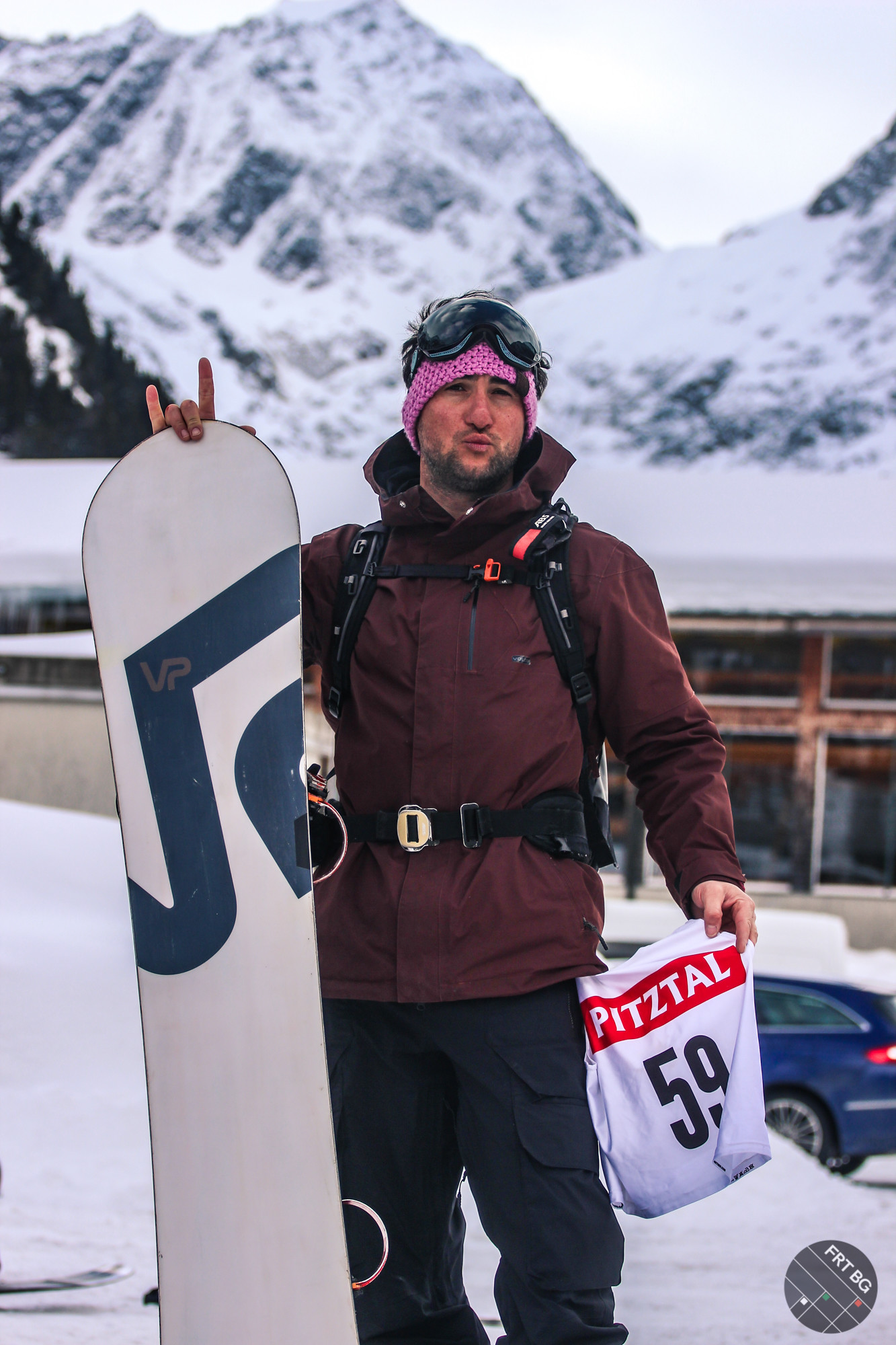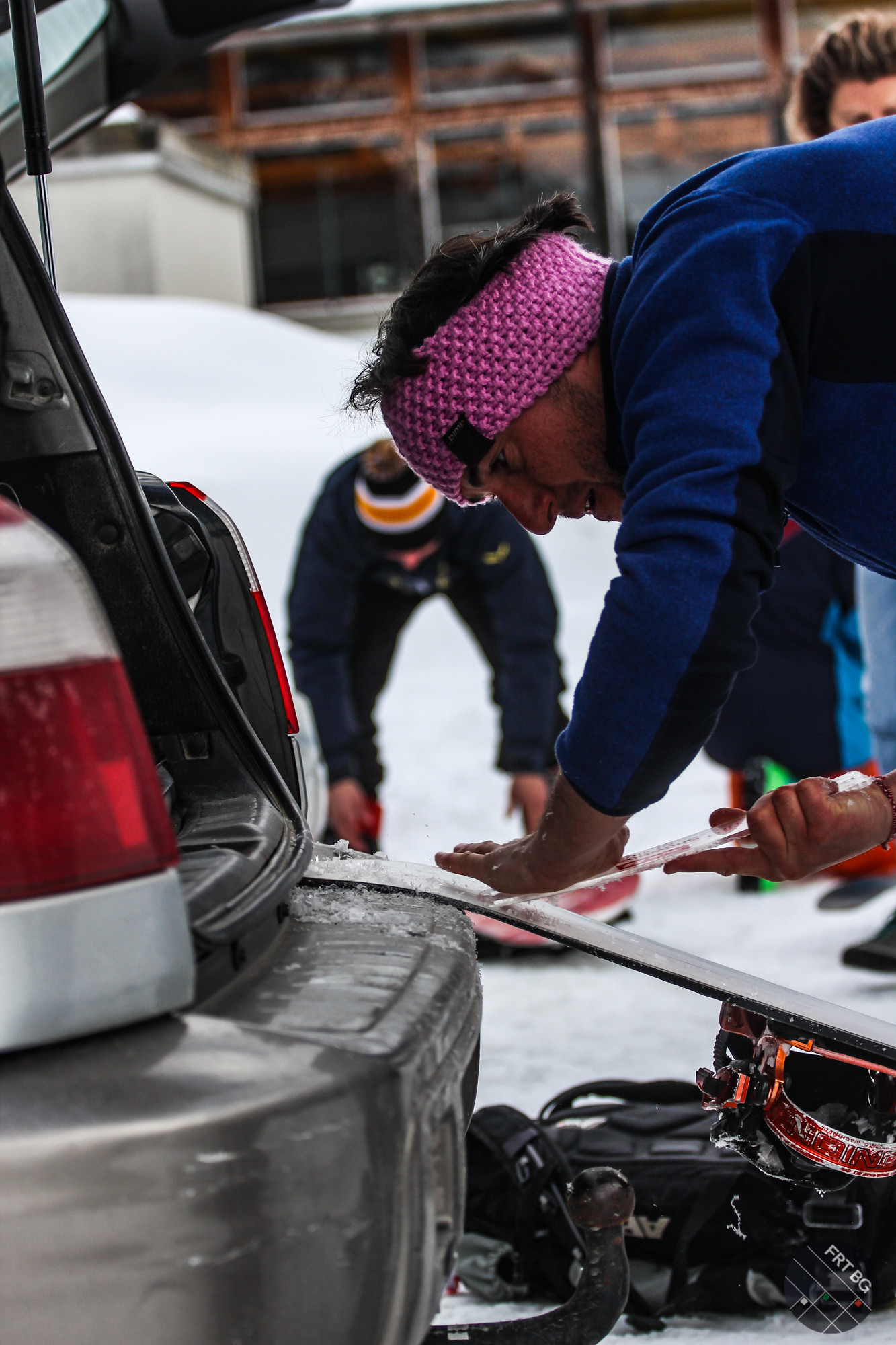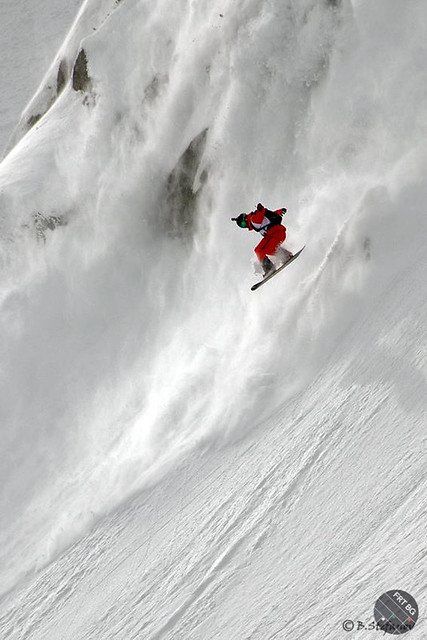Why does 24ins.bg publish interviews with mountaineers, climbers, and skiers?
The mountain is dynamic – from the weather to the terrain. Freeride, climbing, and extreme sports require not only technical skills but also responsibility towards yourself and others. At 24ins.bg, we believe the best way to approach risk is through proper preparation and awareness. That’s why we talk to people who live for the mountains – to share their experiences, lessons, and advice with those who seek freedom beyond the pistes.Boris Parvanov – The Face of Bulgarian Freeride
Boris Parvanov’s name in recent years has become synonymous with numerous first descents on a snowboard, as well as his dominance in the competitive scene. He has podium finishes in both freeride and boardercross competitions. Multiple national champion in men's snowboarding, Boris also made history with a win at the CNF Romania in 2013, making him the Bulgarian with the highest achievement in an international freeride competition in the snowboarding category. In 2019, he added a third-place finish at the Jam Extreme FWQ 2 in Andorra*.Introduce yourself in a few words.
My name is Boris Parvanov, and I’ve been involved in extreme off-piste snowboarding for almost 25 years.
How did you get hooked on freeride skiing/snowboarding, and what motivates you to continue improving your skills?
My grandfather would regularly take me to the mountains for ski school back when everything on Vitosha still worked. At one point, I was given pink skis, and I was 14 years old, which is quite difficult for a teenager to accept when you're skiing with "female" equipment. Whether as a joke or not, this was the reason I decided to try snowboarding. Since then, it has become a major passion of mine.
What is the feeling like to ride down an extreme chute or try a new trick?
The feeling is really nice. I can compare it to achieving something difficult after a lot of effort and work. Chasing a goal that requires dedication and concentration. Every step on the way to a successful line, chute, or trick brings real emotions that stay with you for a long time, sometimes forever in your mind.
What is the biggest risk you’ve taken in the sport, and what did you learn from it?
In freeride, a person is constantly exposed to risk, trying to explore it, assess it, and gauge it to know when to say “no” or back out from the planned run. This sport has its rules and laws, but the final word always belongs to nature and the mountain. A person has never been and will never be bigger and stronger than nature.
What do you think is the greatest challenge in freeride?
To know yourself well and the friends you ride with. To be able to communicate freely and express your opinion in any situation. To know when to back out if your senses tell you so, sometimes despite the desires and will of others in the group.
How do you prepare physically and mentally for riding in tough conditions, such as off-piste terrain or competitions?
Sport should be present in our everyday life. It keeps us mentally balanced and our bodies in good condition. Even just 10-15 minutes a day of exercise can work wonders if done with consistency. There’s no need to do anything extreme or radical, like intense workouts or meditations, but rather daily “sport hygiene.” Anything that can enrich our knowledge, such as information about off-piste riding, weather and forecasts, communication, equipment, navigation, first aid, and protocols for handling incidents, can give us confidence and peace of mind when making decisions in the mountains.
Have you ever had any injuries or accidents while riding? If so, how did you handle them?
I’ve had many injuries, but nothing too serious physically. A person survives in nature because they’ve learned to adapt and recover from every difficulty or injury. All physical injuries also come with mental ones. The faster we get back out and resume doing what we love, the easier it will be to overcome them. Unfortunately, sometimes this "quick" return can take years.
What factors do you think are most important when choosing insurance for skiers?
It should guarantee coverage in case of an incident off-piste, offer a high insurance limit, and provide adequate assistance from specialists.
Would you recommend ski insurance to your colleagues or friends, and why?
Definitely! Always! When it comes to incidents, there’s no "if," only "when." The more we practice our favorite sports, the more likely we are to encounter injuries, accidents, and unfortunate events.
What advice would you give to beginners who want to try off-piste riding?
To get well-informed from as many reliable (as much as possible) sources about the equipment and safety. To enroll in courses that will enhance their knowledge, but most importantly, to meet people and immerse themselves in the freeride culture.
How do you think insurance companies can make their products more attractive to skiers?
By offering adequate packages for the most common injuries, providing good assistance, ensuring coverage for risks off the piste, and including rehabilitation in the package (which can sometimes be the most difficult and expensive part of the recovery process).
Is there a person or event that has inspired you in the sport?
My grandfather, who took me to the mountains every Saturday and Sunday.
What would you say to people who underestimate the need for insurance for extreme sports?
Insurance is one of the most important things we should secure and renew at the start of the season. When the wonderful experience in the mountains turns into a nightmare, it’s the first thing that comes to mind. Sometimes this happens in seconds, and the consequences last for months, years, or even a lifetime.
"Freeride is a game of decisions – make the right one"
Every turn is a choice, every descent a challenge. In the mountains, there’s no room for wrong decisions. Ensure your peace of mind and check out the insurance options that understand your needs. Learn more at [24ins.bg/sport-insurance](https://24ins.bg/bg/sport-insurance). 🎿
victortroyanov.com Photoes: Мanol Chalakov and Viktor Troyanov















